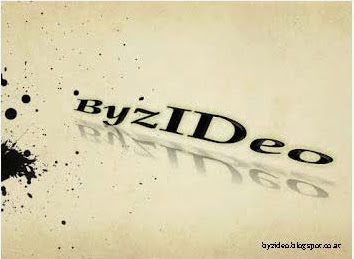International VISCOM Workshop, December 16-17 2013
Historiographies of Identity IV:
History and Identity towards the End of the First Millennium
As the fourth in a series of
workshops dealing with the social functions of historiography from classical
Antiquity to the Middle Ages, this workshop will focus on the later ninth and
tenth centuries CE. Starting from the transformation of the historiographical
legacy of the Carolingian empire, it aims to contrast the development of
historical writing in the Latin West, Byzantium and the Islamic world,
exploring its social role for creating and communicating visions of community.
 The Western material shows historians around
900 reacting in different ways to the transformation of the Carolingian empire.
Although they realise that the old imperial framework of Charlemagne's empire
does not correspond with the actual political realities from the middle of the
ninth century onward, they continue to use it as a common baseline from which
to construct their own histories and resolve the tension resulting from this
discrepancy in different ways. Some try to maintain this past as a vision for
the future by keeping it together as a common Christian World. Others reconfigure
the imperial past in order to fit it to smaller policies of the present such as
the Western Frankish kingdom. Still others reinvent the framework of a Carolingian-Frankish
past as a new one such as historians of the Saxon kingdom. Altogether what we
observe is an experimental process, in which actual and imagined building
blocks of Charlemagne's empire were constantly rearranged from different
perspectives triggering reflections about their historical existence. The
social function of history to formulate and legitimate such claims is something
that everyone seems to take for granted in the Latin West (although this social
function may appear differently after we have problematized its transformation
from ancient history to the history of the Christian successor states in the
post‑Roman West and the Carolingian
empire in previous workshops).
The Western material shows historians around
900 reacting in different ways to the transformation of the Carolingian empire.
Although they realise that the old imperial framework of Charlemagne's empire
does not correspond with the actual political realities from the middle of the
ninth century onward, they continue to use it as a common baseline from which
to construct their own histories and resolve the tension resulting from this
discrepancy in different ways. Some try to maintain this past as a vision for
the future by keeping it together as a common Christian World. Others reconfigure
the imperial past in order to fit it to smaller policies of the present such as
the Western Frankish kingdom. Still others reinvent the framework of a Carolingian-Frankish
past as a new one such as historians of the Saxon kingdom. Altogether what we
observe is an experimental process, in which actual and imagined building
blocks of Charlemagne's empire were constantly rearranged from different
perspectives triggering reflections about their historical existence. The
social function of history to formulate and legitimate such claims is something
that everyone seems to take for granted in the Latin West (although this social
function may appear differently after we have problematized its transformation
from ancient history to the history of the Christian successor states in the
post‑Roman West and the Carolingian
empire in previous workshops).
From this theoretical
perspective of the social function of historical writing to construct
identities, communicate visions of community and legitimate political claims,
we would like to compare this Western European context to that of the Byzantine
and the Islamic world. While in the same period (9th to 11th centuries) the slow
decline of the Abbasid Caliphate invites a comparison with the Islamic world, the
intensification of reflections about the political, religious and cultural
identity of Byzantium (which older historical research addressed as Macedonian
Renaissance) invites a comparison with the Byzantine world too. How might this
political fragmentation have been reflected (or not) in the writing of
historiographical texts? What was the role of history in the social
communication about identity and community in Byzantium and the Islamic world?
What do these histories look like (as a genre or multiple genres) and how might
they be based on models found in historiographical texts of earlier periods
(i.e.7th and 8th centuries)? Ideally, in discussion we would like to evaluate
how similar/different the forms of and the changes in historical writing were
between the Latin West, the Byzantine Empire and the Islamic world from the
ninth to the eleventh centuries in order to compare their role for the creation
of visions of communities.



